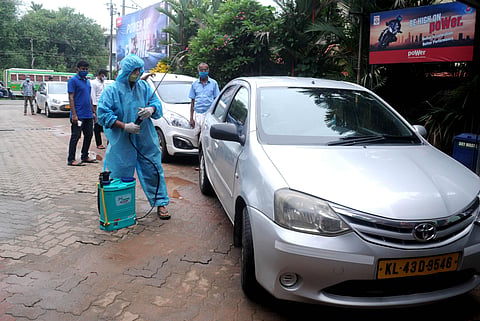

NEW DELHI: The Ministry of Urban Affairs said a large number of people may not use public transport post-lockdown and are likely to shift to private modes of transport due to Covid-19 fear, asking states to encourage and revive non-motorised transport (NMT).
It also suggested a three-pronged strategy which may be adopted in a phased manner — short (within 6 months), medium (within 1 year) and long (1-3 years) — for urban transport services.
The advisory sent by urban affairs secretary Durga Shanker Mishra suggested encouraging the NMT as it requires low cost, less human resource, is easy and quick to implement, scalable and environment- friendly.
It also suggested about recommencing public transport with greater confidence of commuters, saying it is imperative at this stage that transmission of infection through the usage of public transport should be curbed by adopting the right sanitisation, containment and social-distancing norms.
Evidence shows that there has been a steep drop in public transport ridership volumes by 90 per cent during the lockdown. It has been observed that there is up to 60 per cent reduction in air pollution.
Officials said re-establishing the earlier level of ridership in public transport is a big challenge for cities as people may be looking for more options, especially personal modes that allow for safer travel in the post lockdown scenario.
Citing the examples of world cities which have promoted non-motorised transport to tide over the COVID-19 crisis, the ministry said New York has added 40 miles of new lanes to support cyclists and Oakland has closed 10 per cent of its streets for motor vehicles.
Bogotá in Colombia added 76 km of cycling lane overnight, it said.
Similarly, in an advisory to states and metro rail companies on Friday, Mishra said non-motorised transport systems should be encouraged and revived across India.
"As most urban trips are clocked in under five kilometres, non-motorised transport offers perfect opportunity to implement in this COVID-19 crisis as it requires low cost, less human resource, is easy and quick to implement, scalable and environment-friendly," the advisory said.
It is imperative that transmission of infection through public transport is curbed by adopting the right sanitisation, containment and social distancing measures, the ministry said.
"Touch-less systems like BHIM, PhonePe, Google Pay, PayTM and National Common Mobility Card will reduce human interaction in operations of public transit systems," it said.
India has a robust 700 km of operational metro rail in 18 major cities and a Bus Rapid Transit network of about 450 km operational in 11 cities carrying 10 million passengers daily.
The capacity is likely to remain underutilised for some time as commuters remain wary of using shared systems due to fear of contracting the coronavirus.
"Due to the social distancing norms being practiced, their capacities would be utilised at 25 to 50 per cent of pre-coronavirus levels. Such dramatic and dynamic changes in demand and supply will require complementing these public transport systems with alternative modes of transit," it added.
(With PTI Inputs)
Cities which promoted NMT
New York has added 40 miles of new NMT lanes to support cyclists.
Oakland has closed 10% of its streets for motor vehicles.
Bogotá has added 76 km of cycle overnight.
In Milan, 22 miles of streets have been transformed to cycling lanes.
Auckland has built up 17 km of temporary bike lanes.
Bike-sharing promotion in China has led to 150% increase in trips during lockdown.